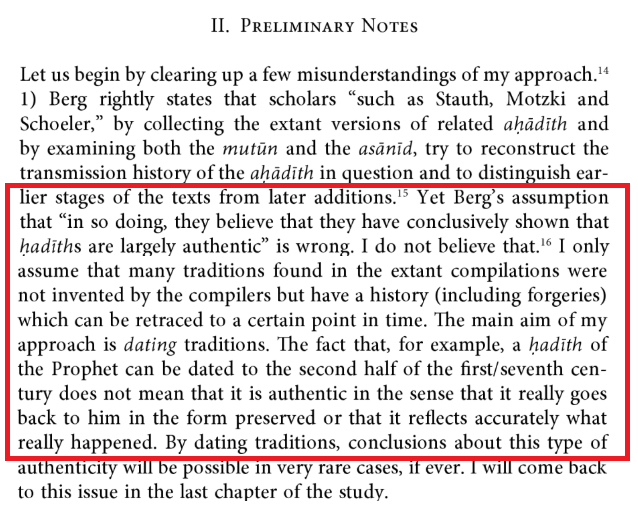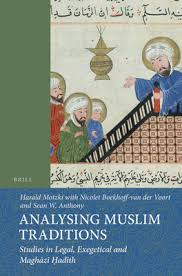What a find! 2 lines of Arabic poetry - often cited in Abbasid-era belles lettres as being pre-Islamic and 𝐶ℎ𝑟𝑖𝑠𝑡𝑖𝑎𝑛 - found north of Mt. Arafat near Mecca. It's dated (!) by the inscriber, Abū Jaʿfar ibn Ḥasan al-Hāshimī, to 98 A.H. (716-17 C.E.). Here's what it says..
https://twitter.com/thoomaly11/status/983791172136132608
1) The turning of Sol effaces the new / afnā l-jadīda taqallub aš-šamsī
2) as does its rising where he passed not the night / wa-ṭulūʿuhā min hayṯu lā tamsī
3) Its rising is white, brilliant and pure / ṭulūʿuhā bayḍāʾu ṣāfiyatun
2) as does its rising where he passed not the night / wa-ṭulūʿuhā min hayṯu lā tamsī
3) Its rising is white, brilliant and pure / ṭulūʿuhā bayḍāʾu ṣāfiyatun
4) Its setting yellow as Yemeni 𝑤𝑎𝑟𝑠 / ġurūbuhā ṣafrāʾu ka-l-warsī
The word 𝑤𝑎𝑟𝑠 = yellow-dye made from a perennial plant, Memecylon tinctorium, cultivated in Yemen. This line has many attestations (albeit w/ slightly different wordings) in Abbasid literature ...
The word 𝑤𝑎𝑟𝑠 = yellow-dye made from a perennial plant, Memecylon tinctorium, cultivated in Yemen. This line has many attestations (albeit w/ slightly different wordings) in Abbasid literature ...

Here is a variant of the poem cited by in Ibn Abī l-Dunyā’s (d. 894 CE) 𝐾. 𝑎𝑙-𝑍𝑢ℎ𝑑 (Eng. On Asecticism) from the Meccan ḥadīth-scholar Sufyān ibn ʿUyaynah from a Coptic/Egyptian Christian who attributes to “a priest (𝑞𝑖𝑠𝑠) of Najrān” 

Another citation of the above verses (in variant form) from 𝐾. 𝑎𝑙-𝐻̣𝑎𝑦𝑎𝑤𝑎̄𝑛 (Eng. On Animals) of al-Jāḥiẓ (d. 869 CE)--he likewise attributes the lines to an unnamed Christian Arab, “the bishop (𝑢𝑠𝑞𝑢𝑓<Gk. ἐπίσκοπος) of Najrān 

The earliest attestations are from the 𝐾. 𝑎𝑙-𝑇𝑖̄𝑗𝑎̄𝑛 𝑓𝑖̄ 𝑚𝑢𝑙𝑢̄𝑘 𝐻̣𝑖𝑚𝑦𝑎𝑟 of Ibn Hishām al-Ḥimyarī (d. 833 CE), a work which records lore about the pre-Islamic Yemenite kings. It allegedly contains an early work from the Umayyad period ...
ʿAbīd ibn Sharyah’s dialogue with Muʿāwiyah ibn Abī Sufyān about the kings of Yemen. It’s not very likely that it's authentic, but Ibn Hishām’s version of the book contains an attestation to the verse, where it’s attributed to Tubbaʿ al-Aqran. BUT ... 

Ibn Hishām’s 𝑇𝑖̄𝑗𝑎̄𝑛 also includes a book of the Yemeni scholar Wahb ibn Munabbih (d. 732): K. al-Mulūk al-mutawwajah min Ḥimyar. Wahb’s book attributes the lines to Dhū l-Qarnayn (!), whom he does *not* identify with Alexander the Great, and provides the FULL poem. 



• • •
Missing some Tweet in this thread? You can try to
force a refresh















